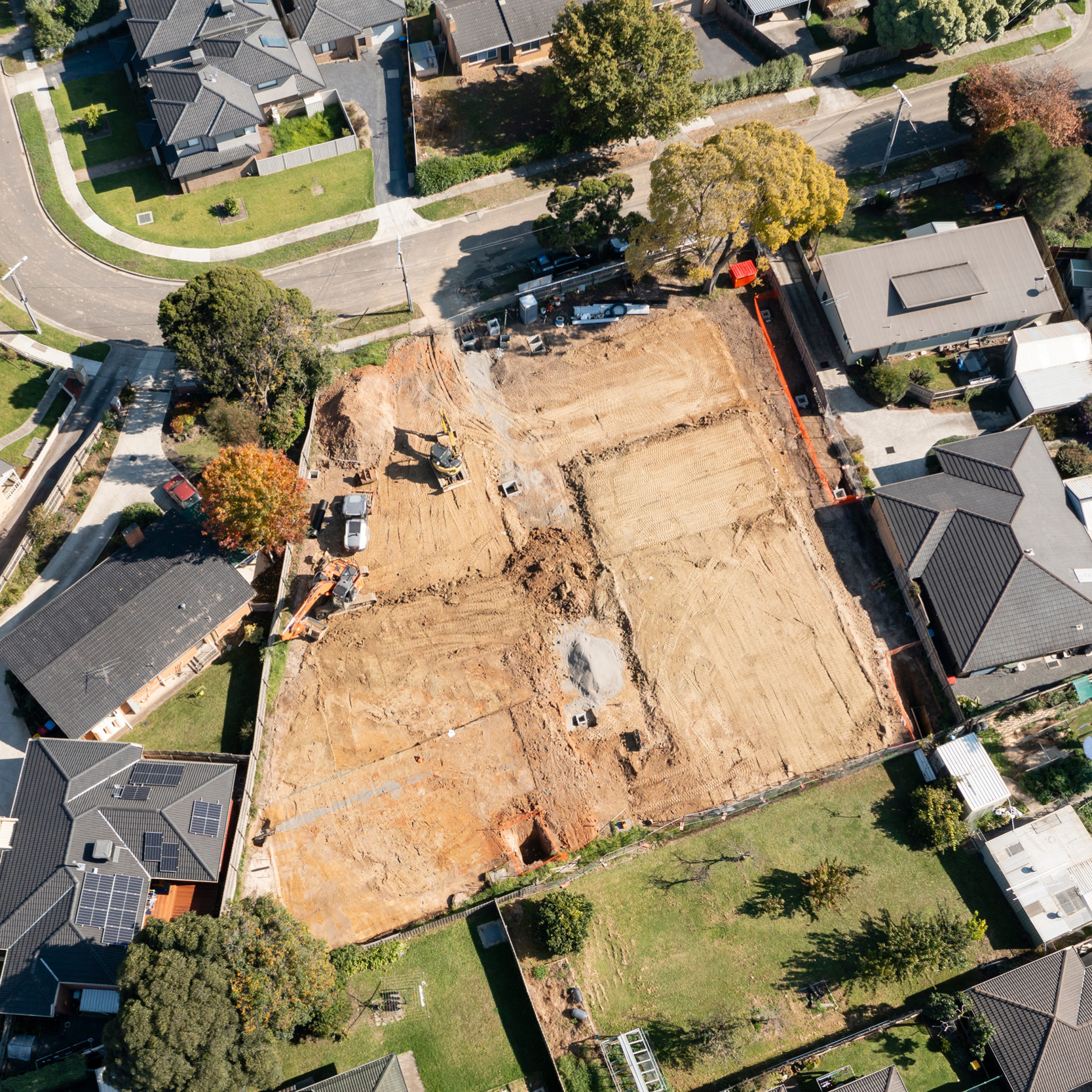No privity: a clause of an agreement requiring a new owner to enter into a similar agreement is not enforceable by the new owner and cannot require the continuing party to enter into the new agreement
Qld Court of Appeal has dismissed an appeal against a decision of the Supreme Court of Queensland that a new landowner seeking to enforce a give and take agreement could not do so as it was not a party to the give and take agreement.
In brief
The case of Bellevue Station Pty Ltd v Consolidated Pastoral Company Pty Ltd & Anor [2024] QCA 47 concerned an appeal to the Queensland Court of Appeal (Court of Appeal) against the decision of the Supreme Court of Queensland (Supreme Court) in the case of Consolidated Pastoral Company Pty Ltd v Bellevue Station Pty Ltd & Anor; Bellevue Station Pty Ltd v Consolidated Pastoral Company Pty Ltd [2023] QSC 202 in respect of a give and take agreement about the use of terrain separating land in Far North Queensland described as Bellevue Station and Wrotham Park (Agreement).
The Agreement was entered into by the First Respondent and the Second Respondent in 2009. Similar give and take agreements have been known to exist in relation to Bellevue Station and Wrotham Park dating back to 1980.
The Second Respondent sold Bellevue Station to the Appellant in 2021 and had, in accordance with Clause 6 of the Agreement, disclosed the Agreement to the Appellant and the contract of sale required the Appellant to enter into a similar arrangement with the First Respondent.
The First Respondent refused to sign an agreement put to it by the Appellant and the Second Respondent and Appellant subsequently entered into a deed of assignment seeking to assign the Second Respondent's rights under the Agreement to the Appellant (Deed of Assignment).
The Appellant relevantly sought declarations in the Supreme Court that the First Respondent was obliged to sign the new agreement, and the First Respondent sought declarations to the opposite effect.
The Supreme Court found in favour of the First Respondent and declared that the Deed of Assignment is of no effect at law, that the Appellant is not a party to the Agreement and cannot enforce its clauses, and that Clause 6 of the Agreement does not require the First Respondent to enter into the new agreement.
The Court of Appeal held that the orders of the Supreme Court were correct and dismissed the appeal.
Clause 6 of the Agreement
Clause 6 of the Agreement was significant and important to the proceedings and relevantly states as follows:
"In the event that either party disposes of its land, it will draw the attention of the incoming purchase to this Agreement and have them enter into a similar arrangement with the continuing party."
It was this clause that the Appellant contended required the First Respondent to enter into a new agreement on similar terms to the Agreement.
Issues considered by the Supreme Court and Court of Appeal
The Supreme Court and Court of Appeal considered the following issues:
-
Issue 1 ‒ Whether covenants in the Agreement "run with the land" at general law and in equity, such that the Appellant is entitled to their benefit despite not being a party to the Agreement.
-
Issue 2 ‒ Alternatively, whether section 55 of the Property Law Act 1974 (Qld) (Property Law Act), which deals with contracts for the benefit of third parties, renders the Agreement enforceable by the Appellant as a beneficiary of the Agreement.
-
Issue 3 ‒ Alternatively, whether the Appellant has been assigned the benefit of the covenants in the Agreement under the Deed of Assignment such that the First Respondent is bound to enter into the new agreement.
Criteria for a covenant to run with the land
A "covenant" is a promise made in a deed. A restrictive covenant restrains the covenantor from doing an act, "…the benefit and burden of which runs with the land and is enforceable in equity" (at [24] of the Supreme Court judgment). Whereas, a positive covenant does not generally run with the land (at [28] of the Supreme Court judgment). A covenant expressed as personal is for the covenantee only and does not run with the land (at [48] of the Court of Appeal judgment).
For a covenant to run with the land the following criteria must be satisfied:
In the case of P & A Swift Investments (a firm) v Combined English Stores Group PLC [1989] AC 632 (P&A Case) the House of Lords provided the following test for whether a covenant touches and concerns the land:
"(1) The covenant benefits only reversioner for the time being, and if separated from the reversion ceases to be of benefit to the covenantee. (2) The covenant affects the nature, quality, mode of user or value of the land of the reversioner. (3) The covenant is not expressed to be personal (that is to say neither being given only to a specific reversioner nor in respect of the obligations only of a specific tenant). (4) The fact that a covenant is to pay a sum of money will not prevent it from touching and concerning the land so long as the three foregoing conditions are satisfied and the covenant is connected with something to be done on, to or in relation to the land."
Section 53 of the Property Law Act effectively codifies the common law position that covenants "relating to land" shall be deemed to be made with the covenantee and its successors in title. The Supreme Court held that whether a covenant "relates to land" requires the same considerations as stated in the P&A Case (see [35] and [39] to [40] of the Supreme Court judgment).
The Court of Appeal also observed the following in respect of the enforceability of covenants outside of contract, which ought to be considered in order (at [37]):
"1. If there is privity of contract, all covenants are enforceable…
2. If there is privity of estate, but not privity of contract, only covenants which touch and concern the land are enforceable…
3. If there is privity neither of contract nor of estate, then with two exceptions, no covenants are enforceable."
Issue 1 ‒ personal covenants do not "run with the land"
The Agreement is a commercial contract and thus ought to be construed by what a reasonable business person would have, having regard to the contract as a whole, understood the terms of the Agreement to mean as informed by the language used, surrounding circumstances, and the commercial purpose or objects secured by the Agreement and is to avoid making commercial nonsense (see [56], [57], and [58] of the Supreme Court judgment).
In respect of Issue 1, the Supreme Court held that limbs 1, 2, and 4 of the test in the P&A Case were satisfied (at [59]), but that the third limb failed because Clause 2 of the Agreement which relates to the use of Bellevue Station and Wrotham Park by the First and Second Respondent is a personal covenant excluding it from touching and concerning the land and properly construed Clause 6 does not require the continuing owner to enter into a new agreement (see [66] and [67]).
Whilst it was not necessary for the Supreme Court to consider the intention of the parties because the covenants were held not to touch and concern the land, the Supreme Court observed in obiter that there was nothing in the Agreement that suggested the covenants would benefit the Second Respondent's successors in title and Clause 6 was intended to give the First Respondent a choice to continue the arrangement or not (see [72], [73], and [77]).
The Supreme Court also found that for the same reasons that the covenants did not run with the land in equity (see [88] to [90]), and that section 53 of the Property Law Act does not operate to displace an intention that a covenant does not run with the land (see [71] and [80]).
The Court of Appeal held that there was no obligation on the First Respondent to enter into the new agreement under Clause 6 of the Agreement, and that implying such obligation is not necessary to achieve the "business efficacy or commercial purpose" of the Agreement or to give the Second Respondent the benefit of the Agreement (see [10], [15] to [17], [22], [56], and [59]). Even if there was an obligation, the majority of the Court of Appeal held that Clause 6 would be considered void at law because it is about an agreement to agree in respect of which the terms are uncertain (see [10], [18], and [19]).
The Court of Appeal also held that section 53 of the Property Law Act could not apply because the language of the Agreement leads to a finding that the promises within are personal do not touch and concern the land (at [12], [52], and [57]).
Issue 2 ‒ no duty enforceable by a beneficiary
To satisfy section 55(1) of the Property Law Act it must be established that there is a promise "…to do or refrain from doing an act for the benefit of a beneficiary…" and the parties must "…[intend] to create a duty enforceable by a beneficiary" (see [94] of the Supreme Court judgment and section 55(6) of the Property Law Act).
The Supreme Court rejected the Appellant's argument that Clause 2 of the Agreement was also for the benefit of the Second Respondent's successors in title and held that the Agreement does not contain a promise enforceable by a beneficiary, rather the Agreement contemplated rights under a new agreement if agreed to by the continuing owner (at [97]).
The majority of the Court of Appeal held that because of its finding in respect of Issue 1, there is no promise enforceable under section 55 of the Property Law Act (see [10] and [26]).
Issue 3 ‒ no assignment where identity is important to the party with the obligation
In respect of the assignment of legal things in action under section 199 of the Property Law Act, the Supreme Court held that an obligation cannot be assigned "…where the identity of the person to whom the obligation is owed is a matter of importance to the person on whom the obligation rests" (at [110]). The Court of Appeal also observed this at [33] of its judgment.
The Supreme Court held that Clause 6 of the Agreement is specific to the identity of the parties and the Second Respondent has a right to decide whether to enter into a new agreement, such that the identity of a new owner is of importance to the continuing owner (at [111]). Thus, the rights under the Agreement are personal and cannot be assigned. The Supreme Court declared the Deed of Assignment invalid (at [112]).
The Court of Appeal doubted that the rights under the Agreement were assignable, and held that even if they were, by the time of the Deed of Assignment, the Second Respondent had nothing to assign that would compel the First Respondent to enter into the new agreement or to exercise the Second Respondent's rights under the Agreement, because it is implied in the Agreement that if a party sells its lease it will no longer have the right to use the other party's land under the Agreement and the Second Respondent had sold its land thereby ending the Agreement (see [11], [35], and [36]).
Conclusion
Whilst the reasoning of the Court of Appeal differed in some respects to the Supreme Court, the Court of Appeal agreed with the orders made by the Supreme Court and dismissed the appeal.


